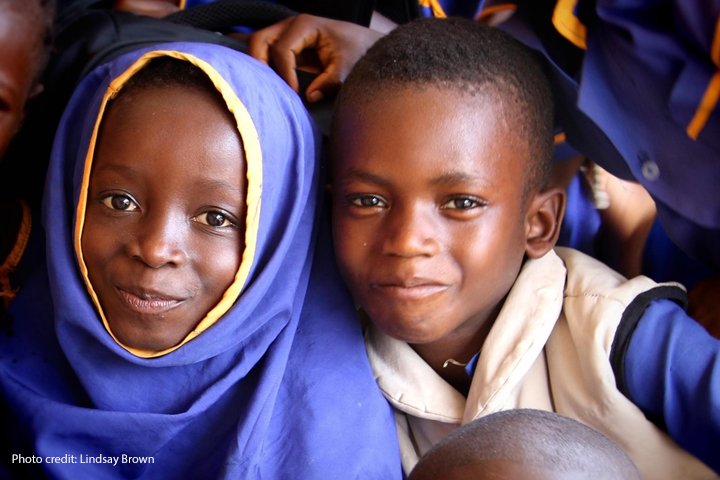Resources
Remedial Education to Support Learning Loss Threatened by Cuts to Development Aid
This blog is written by Dr Lindsay Brown, Senior Research Scientist at NYU-Global TIES in Steinhardt School of Culture, Education, and Human Development. Lindsay primarily investigates how to support teachers in areas of conflict and crisis with a focus on flexible and scalable teacher professional development strategies. She works mainly in the Middle East and Africa.
Image credit:
Pawel Czerwinski
@pawel_czerwinski via Unsplash.
Lebanon Year 2 Deidentified Data (2017-2018)
To generate the evidence needed to understand, improve and share what works to help refugee children learn and succeed in school, the International Rescue Committee (IRC) and NYU Global TIES for Children (TIES/NYU) established a strategic partnership, the Evidence for Action: Education in Emergencies (3EA) initiative. In Lebanon, this program was designed and delivered to complement the Lebanese public education system and enhance learning and retention of Syrian refugee children through remedial tutoring programs infused with climate-targeted social-emotional learning (SEL) principles and practices (Tutoring in a Healing Classrooms - HCT) and skill-targeted SEL interventions (Mindfulness activities, Brain Games, 5-Component SEL Curriculum).
Niger Year 2 Deidentified Data (2017-2018)
To generate the evidence needed to understand, improve and share what works to help refugee children learn and succeed in school, the International Rescue Committee (IRC) and NYU Global TIES for Children (TIES/NYU) established a strategic partnership, the Evidence for Action: Education in Emergencies (3EA) initiative. 3EA in Niger was designed and delivered to help strengthen the public education system in Niger and to serve refugee, IDP and host community children in the hard-hit Diffa region. It strove to achieve this through a remedial tutoring program infused with climate-targeted social-emotional learning (SEL) principles and practices (Tutoring in a Healing Classrooms), and adding skill-targeted SEL interventions (Mindfulness activities, Brain Games).
Niger Year 1 Deidentified Data (2016-2017)
To generate the evidence needed to understand, improve and share what works to help refugee children learn and succeed in school, the International Rescue Committee (IRC) and NYU Global TIES for Children (TIES/NYU) established a strategic partnership, the Evidence for Action: Education in Emergencies (3EA) initiative. 3EA in Niger was designed and delivered to help strengthen the public education system in Niger and to serve refugee, IDP and host community children in the hard-hit Diffa region. It strove to achieve this through a remedial tutoring program infused with climate-targeted social-emotional learning (SEL) principles and practices (Tutoring in a Healing Classrooms), and adding skill-targeted SEL interventions (Mindfulness activities, Brain Games).
Can tutoring informed by social-emotional principles improve learning outcomes? A look across multiple conflict-affected contexts
What can be done to improve learning outcomes for the millions of children growing up in conflict-affected societies and enrolled in under-resourced school systems? How can the global community safeguard the right of every child, including those in crisis settings, to a quality education and position them to heal, learn and thrive? What are the best interventions that achieve the greatest outcomes for the most children in humanitarian contexts?
IRC Healing Classrooms Retention Support Programming Improves Syrian Refugee Children’s Learning In Lebanon
During school year 2016-2017, the International Rescue Committee (IRC) delivered Learning in a Healing Classroom after-school programming to support Syrian refugee children’s learning outcomes and retention in Lebanese public schools. We found that access to Healing Classrooms programming significantly improved students’ reading and math skills, as well as reduced the likelihood of interpreting interactions with peers as hostile in intent, after the first four months of program implementation.
The Impact of IRC’s Healing Classrooms Tutoring on Children’s Learning and Social-Emotional Outcomes in Niger
During school year 2016-2017, the International Rescue Committee (IRC) delivered Healing Classrooms remedial tutoring programming and additional low-cost, targeted Social-Emotional Learning (SEL) (SEL) interventions to children in Diffa, a region in Niger affected by recurrent Boko Haram attacks. We found that, after twenty-two weeks of program implementation, access to Healing Classrooms tutoring significantly improved students’ reading and math skills, and adding targeted SEL interventions to Healing Classrooms tutoring improved children’s overall school grades. However, we found little evidence of direct impacts of the additional targeted SEL strategies on children’s social-emotional outcomes.
IRC Healing classrooms remedial tutoring programming improves Nigerien and Nigerian children’s learning
With support from Dubai Cares during the school year 2016-2017, the International Rescue Committee (IRC) delivered Learning in a Healing Classroom remedial tutoring programming to support local and internally displaced Nigerien children and refugee Nigerian children’s learning outcomes and retention in public schools in Niger. We found that, after twenty-two weeks of program implementation, (1) access to Healing Classrooms programming significantly improved students’ reading and math skills, and (2) adding low-cost, targeted Social-Emotional Learning (SEL) interventions to Healing Classrooms improved students’ overall school grades as well.
AN EIE RESEARCH-PRACTICE PARTNERSHIP: Learning to improve academic and social-emotional outcomes
We present here as the overarching “promising practice” a research-practice partnership dedicated to iterative cycles of action and research. In 2016-2017, the IRC delivered non-formal retention-focused tutoring support, also known as remedial programming, to 6,400 children enrolled in public schools in Lebanon and Niger using its Learning in a Healing Classroom (LIHC) program. LIHC is an evidence-based approach to providing reading and math courses in safe and supportive learning environments. Sites were additionally randomized to embed low-cost, targeted social-emotional learning (SEL) interventions into the curriculum. TIES/ NYU then conducted a site-randomized trial to provide the first rigorous evidence of whether and how non-formal, SEL-based retention support education programs can bolster refugee children’s ability to succeed in formal education systems, as well as some of the first evidence globally on how targeted SEL practices can be embedded in curriculum to support children’s holistic learning and development. We share the lessons learned from both the interventions and from the partnership, focusing on the work in Lebanon.











